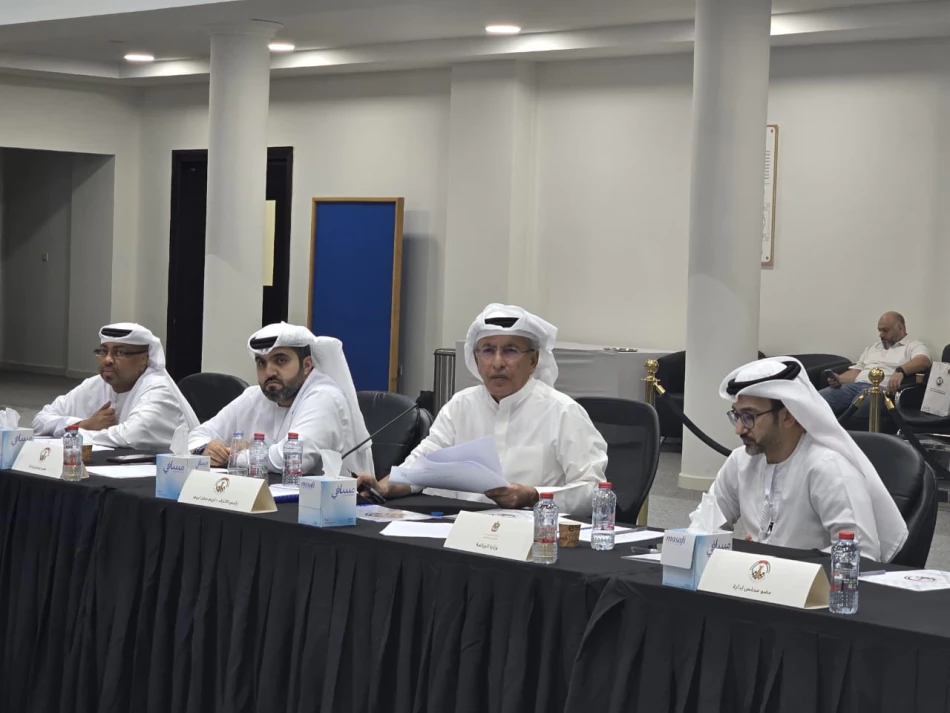
Chess Federation Adopts New Election System for Upcoming Term
UAE Chess Federation Modernizes Structure as Sport Gains Educational Momentum
The UAE Chess Federation has approved sweeping governance reforms that align with national sports law while expanding inclusivity in leadership and membership. The changes, ratified during an extraordinary general assembly meeting, signal the federation's commitment to professionalizing chess administration as the sport experiences growing integration into the country's educational system.
Governance Overhaul Reflects Broader Sports Modernization
Representatives from 16 of the federation's 17 member clubs gathered at the National Olympic Committee headquarters to approve a new charter that brings chess governance in line with UAE sports legislation. This alignment demonstrates the federation's evolution from a recreational organization to a formally regulated sporting body—a trajectory mirrored across Gulf states as they professionalize their sports sectors.
The approved electoral system for the 2025-2028 term mandates seven-member candidate lists, including at least one female representative. This gender inclusion requirement reflects broader UAE initiatives to increase women's participation in sports leadership, following similar moves in football and other federations.
Residency Rules Open Doors for Expatriate Talent
Perhaps most significantly, the federation approved allowing up to 30% of board positions to be held by UAE residents rather than exclusively citizens. This policy mirrors successful models in Singapore and other international chess hubs where expatriate expertise has strengthened federation capabilities and international connections.
Membership Dynamics Signal Growing Professionalization
The federation welcomed two new active members—Dibba Al-Fujairah Club and Masafi Club—while accepting Al-Madam Club's withdrawal. More telling is the introduction of participation requirements: clubs must field at least 15 players across all activities or face conversion from active to sports membership after two consecutive seasons of non-compliance.
This performance-based membership structure suggests the federation is prioritizing active participation over nominal affiliation, potentially strengthening the competitive foundation as chess gains prominence in UAE sports culture.
Educational Integration Drives Strategic Growth
Federation members praised the schools chess project led by President Tarim Matar Tarim, which includes teacher training programs designed to identify and develop young talent. This educational integration strategy has proven successful in chess powerhouses like Russia and China, where school-based programs create sustainable talent pipelines.
The initiative positions chess as both an educational tool and competitive sport, potentially increasing participation rates and improving the UAE's standing in international competitions. For investors and sports development companies, this represents a growing market for chess-related educational products and services.
Inclusive Sports Development Takes Center Stage
The federation's commitment to supporting clubs for people with disabilities, including developing specialized regulations and ensuring proper facilities, aligns with the UAE's broader accessibility initiatives. This focus could position the federation as a regional leader in inclusive sports programming, potentially attracting international recognition and partnerships.
Strategic Implications for Regional Chess Development
These reforms position the UAE Chess Federation to compete more effectively with established regional rivals like Qatar and Saudi Arabia, both of which have invested heavily in chess infrastructure and international tournaments. The combination of improved governance, educational integration, and inclusive policies creates a foundation for sustained growth in both participation and competitive performance.
The timing coincides with chess's global resurgence, driven by digital platforms and popular culture. The UAE's systematic approach to federation modernization suggests recognition that chess development requires the same professional structure as traditional sports—a realization that could accelerate the country's emergence as a regional chess hub.
Most Viewed News

 Sara Khaled
Sara Khaled






